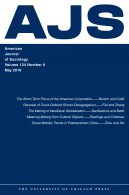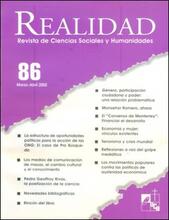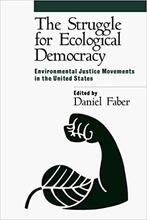This study examines the role of loosely-coupled state actor-social movement coalitions in creating positive policy outcomes. It specifies the organizational locations within the state most conducive to state actor-social movement ties. Using the case of Japanese anti-pollution politics between 1956 and 1976, we demonstrate that favorable policy outcomes were the result of multiple coalitions between anti-pollution movements and stateagencies, opposition political parties, local governments, and the courts.
Publications
2004
2003
We compare activist-based internet data with four other media sources—Lexis NexisAcademic Universe, The Seattle Times, Global Newsbank, and The New York Times—ontheir coverage of the local, national, and international protests that accompanied the WorldTrade Organization’s (WTO) Third Ministerial Conference in Seattle, Washington in late1999. Using the Media Sensitivity-Protest Intensity Model of event reporting, we find thatactivist-based web sites report a greater number of transnational protest events at the local,national, and international level. We also find that activist-based websites are less positivelyinfluenced by the intensity properties of protest events. In the age of globalization, researchon transnational movements should therefore combine conventional media sources andactivist-based web sources.
The article combines two strands of political process theory (opportunity and threat) in a changing authoritarian context. Through the use of protest event, archival, and secondary sources on El Salvador between 1962 and 1981, the study examines the outbreak and forms of two protest waves that are generated by the temporal sequencing of political opportunity and threat environments. The specific opportunities of institutional access and competitive elections motivate regime challengers to form durable civic organizations. This newly available organizational infrastructure can be used to sustain reformist contention in the near term as well as be radicalized to launch more disruptive and violent protest campaigns when opportunities recede and the political environment transitions to one characterized by mounting threats (state-attributed economic problems, erosion of rights, and state repression).
2002
1998
This paper examines the Minamata mercury victims’ grassroots movement. Our analysis demonstrates the value of using a political opportunity framework to understand local grassroot environmental movement (LGEM) outcomes. We explain the variation over time in a LGEM’s ability to achieve successful outcomes across different political environments. Specifically, we show that the success of the Minamata LGEM hinged on its ability to employ nontraditional and institutionally disruptive tactics during a period of expanded political opportunities.






